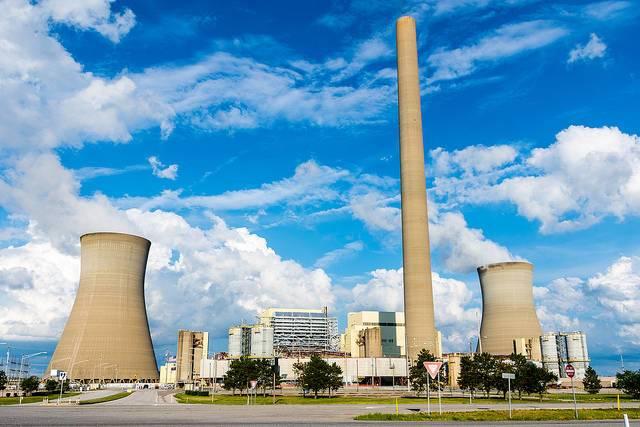
As the annual Climate Week NYC launches today, more companies are announcing their commitment to carbon emissions reduction targets.
And they are doing so through using the guidelines set by the Science Based Targets initiative, which provides a framework that its supporters say can help companies stay competitive while doing their part to mitigate climate change.
The number of companies committed to climate action while incorporating this initiative has roughly doubled from just over a year ago, when 155 companies had pledged to do what they could in order to limit the world’s temperature to less than a 2°C increase this century.
Companies now onboard include Adobe, Merck, Nike, United Technologies and the Spanish telecommunications giant Telefónica. At least 50 of the companies that have announced a science-based emissions reduction plan to date are headquartered in the U.S.
These companies join the likes of Mars Inc., which earlier this month it would invest $1 billion over the next several years on plans such as climate change mitigation and sustainable supply chain programs. The food conglomerate recently had its targets approved by a team of experts from this initiative. The apparel manufacturer and retailer H&M announced a long-term “climate positive” plan this spring and say it is committed to this global program. And both spinoffs of the former HP, Hewlett Packard Enterprise Company and HP Inc., have already set targets aligned with the Science Based Targets Initiative.
A study released earlier this year estimated that almost half of all Fortune 500 companies recognize climate change risks and have developed a plan for climate change mitigation or more aggressive clean energy adoption – just another way the business community is rebuking the current presidential administration. Many companies realize that nationwide climate change goals cannot occur without the private sector’s leadership; and in the U.S., many have continued their sustainable-business-as-usual plans despite the federal government’s decision to withdraw from the Paris Accords.
The Science Based Targets initiative is a partnership between NGOs including CDP, World Resources Institute (WRI), WWF and the United Nations Global Compact. Companies who decide to align with this program have two years to develop a science-based emissions reduction plan, which in turn are evaluated by the team of experts who work with this initiative. The initiative only approves such plans that meet strict criteria, which to date include 71 various targets. Furthermore, companies who decided to set these science-based targets must have a plan that not only reduces emissions within their own operations, but also across their entire value chains. The initiative is one of several programs that is affiliated with the international We Mean Business coalition.
According to the WRI, the companies that have so far aligned themselves with the Science Based Targets initiative comprise an estimated $6.5 trillion in market value – an amount roughly equal to the NASDAQ stock exchange or the combined GDPs of Germany and the United Kingdom. These companies also emit 750 million metric tons of CO2 emissions annually, comparable to 158 million cars driven for one year, says the WRI. The companies are from 35 countries and span a wide range of sectors including apparel, chemicals, consumer packaged goods, finance, hospitality, manufacturing and technology.
Image credit: Don Sniegowski/Flickr

Leon Kaye has written for 3p since 2010 and become executive editor in 2018. His previous work includes writing for the Guardian as well as other online and print publications. In addition, he's worked in sales executive roles within technology and financial research companies, as well as for a public relations firm, for which he consulted with one of the globe’s leading sustainability initiatives. Currently living in Central California, he’s traveled to 70-plus countries and has lived and worked in South Korea, the United Arab Emirates and Uruguay.
Leon’s an alum of Fresno State, the University of Maryland, Baltimore County and the University of Southern California's Marshall Business School. He enjoys traveling abroad as well as exploring California’s Central Coast and the Sierra Nevadas.














